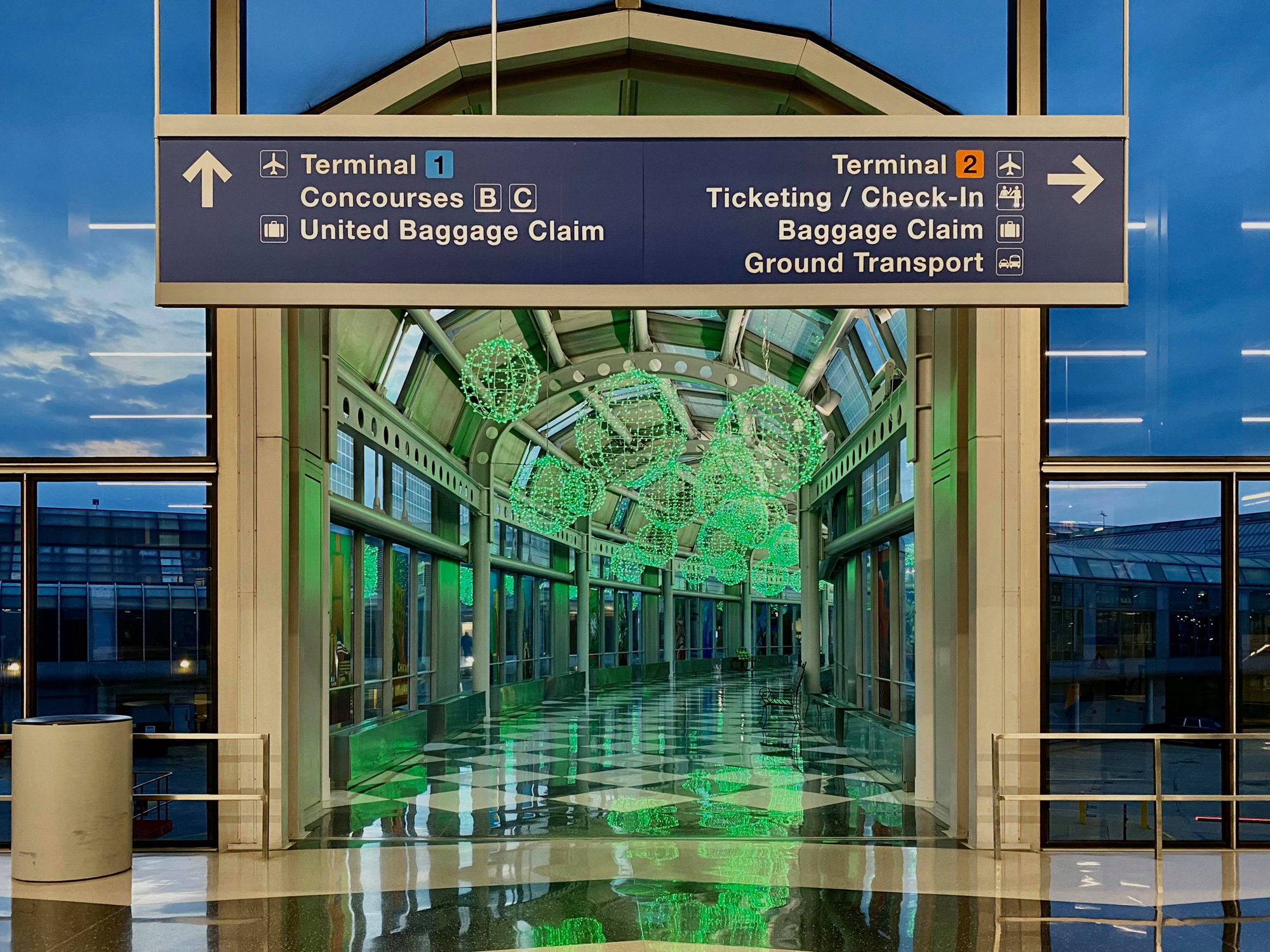- Enticing flight deals for the fall are tempting quarantined travelers to consider life beyond the pandemic despite the lingering uncertainty of the global situation.
- Airlines, in their attempt to re-inspire confidence, have implemented numerous passenger-friendly strategies to get consumers back on planes including waiving fees.
- The potential dangers of booking travel months in advance when the virus is not yet contained, however, can lead some to suffer financially if not careful when making travel plans.
- Visit Business Insider’s homepage for more stories.
What is normally the busiest travel season of the year is on track to be derailed due to the ongoing COVID-19 pandemic. Millions of would-be travelers have been forced to cancel trips as travel restrictions, border closures, and stay at home orders greatly restrict freedom of movement.
Airline schedules have also been thrown out of whack as flights have been canceled and consolidated en masse to salvage any remaining cash flow from an onslaught of passenger-initiated cancellations and refunds in the past two months.
Despite the havoc that the pandemic is wreaking on the travel industry, the desire to travel still remains and optimists are already looking to get the best deals for future travel once the crisis has passed. For some destinations, travel for the upcoming fall and winter has never been cheaper as airlines attempt to regain the business of the travelers they lost during the spring.
The recovery won’t be quick as some airlines would like, as experts are warning, and while we are moving closer to a post-pandemic world, it may be as far away as a year or longer before travel returns to normal.
Here's why you should consider buying a ticket - and why not.
SHOULD: Cheap flights for the fall and winter are hard to resist, especially to destinations formerly outside of the budget.
Roundtrip $200 to Spain, $250 to Italy, and $500 to Israel from New York are just a small sampling of flight deals spurred by the novel coronavirus-inflicted pandemic that has some debating on whether or not to book fall flights. The deals are undoubtedly enticing, especially with some areas of the country forcibly entrenched months-long quarantine.
Multiple travel experts told Insider's Sophie-Claire Hoeller that for those looking travel in the upcoming months, the time to buy is now.
SHOULDN'T: While that would typically be reason enough to start booking again, we're not out of the woods with the pandemic just yet.
Public health officials have said that life will not return to normal until a vaccine is produced, 12-18-month long process, according to Dr. Anthony Fauci, director of the US National Institute of Allergy and Infectious Disease. Until a vaccine or therapy is produced, there's nothing besides social distancing to stop a second wave once the weather in the Northern Hemisphere shifts back towards the winter.
Fall is only five months away and vaccines are a long way off despite the urgency to fight the potentially deadly disease that's shown little regard for national boundaries and state borders.
SHOULD: Most major airlines are waiving change fees for new bookings giving customers a degree of flexibility.
Travel has been historically restrictive in terms of flexibility as airlines have introduced ancillary fees over the years that penalized travelers for making changes. As a gesture of goodwill and way of re-inspiring confidence in booking flights, most major airlines in the US and some abroad are waiving change fees for new bookings.
Passengers will still have to pay fare differences but it gives some leeway should the need to change a trip after booking arises.
SHOULDN'T: The COVID-19 pandemic also blurred the lines on which airlines to trust and showed which ones were prompt with refunds and which ones surprisingly weren't.
Before the pandemic, large, full-service airlines were typically considered to be safer especially as the years prior saw the collapse of numerous low-cost and regional carriers including Thomas Cook Airlines, WOW Air, and Monarch Airlines.
The current unexpected situation, however, has revealed financially secure airlines aren't immune to cash flow issues leading them to be stingy when passengers rightfully request their money back following a flight cancellation.
You may be able to cancel your flight, but you may not get your money back.
SHOULD: Some airlines are taking fee waivers a step forward and waiving cancellation fees.
A smaller subset of airlines allowing free changes is allowing free cancellations for new bookings, offering a greater degree of flexibility when it comes to future travel. If the pandemic worsens or travel plans change, flyers can get the cost of their booking placed in a travel credit or voucher to be used within a set period of time.
A cancellation is different than a refund in that the credit or voucher can only be used for future travel and cash refunds back to a credit or debit card would not likely be permissible in normal circumstances.
SHOULDN'T: Airlines may also decide down the line that some flights aren't worth operating if demand doesn't warrant it.
With future demand still uncertain, airlines are canceling flights on a rolling basis. What is on the schedule for future months may change is demand doesn't bounce back in the way that airlines hope it will.
If the $200 flight to Spain doesn't fill up, there's nothing stopping the airline from canceling the flight and potentially ruining a dream trip and leaving travelers in the dust. Any subsequent non-refundable bookings should be held off on for as long as possible to ensure ultimate flexibility.
SHOULD: The aircraft themselves will be cleaner than ever as airlines introduce new disinfectant rigorous cleaning techniques.
Air travel is commonly associated with the spread of a disease during a pandemic as an asymptomatic traveler can board a plane to a destination on the other side of the world and unknowingly infect others. Realizing this concern early on in the COVID-19 pandemic, airlines adjusting their aircraft cleaning methods to ensure passenger safety was maintained.
Physical cleaning procedures changed and new methods were introduced including "fogging," where electrically charged disinfectants are sprayed throughout the cabin to kill any lingering pathogens.
SHOULDN'T: The decision to travel also not be up to you, depending on where you live.
Numerous states have instituted shelter in place orders limited non-essential travel. States haven't gone as far as to institute checkpoints at airports to prevent leisure travel but some countries on lockdown are preventing citizens from leaving, according to Politico.
SHOULD: Some airports are also doing their part to ensure social distancing.
Despite record low airport traffic according to Transportation Security Administration screening statistics, San Francisco International Airport is taking measures to ensure its travelers are social distancing.
At security checkpoints and in the gate areas, stickers are strategically placed to remind passers-through to keep their distance from one another to prevent an outbreak, an airport spokesperson told Business Insider in an email.
Signage around the airport also reminds travelers to take proper precautions to avoid contracting or spreading the virus.
SHOULDN'T: Even if your home state or country doesn't restrict your movement, your arrival destination might.
Travel restrictions are becoming very common even in western countries where freedom of movement is a key tenant. President Donald Trump restricted access to the US for non-citizens who had been to China, later expanding it to Europe.
And it's not just the US. Numerous countries are going on lockdown and its uncertain when they will end or what restrictions will remain in place after they are lifted.
SHOULDN'T: Some countries aren't even sure when they'll reopen borders to permit foreign tourists.
The US-Canadian border separating two massive trading partners bound by a similar history and shared language remains closed to non-essential travel with no firm date on when it will re-open.
Australia closed its borders in mid-March and some government officials are saying it may remain closed until the end of the year or even longer, the Daily Mail reported.
SHOULDN'T: Even if a traveler manages to get to an intended destination, it's unclear when landmarks and attractions will re-open.
In the Old City of Jerusalem, one of the most popular destinations for tourists and pilgrims alike, holy sites including the Church of the Holy Sepulcher, Western Wall, and al-Aqsa Mosque are closed due to government restrictions, according to the Washington Post.
The story is the same for other attractions including the Eiffel Tower in Paris, US Capitol Building in Washington, and Walt Disney World in Orlando.
It's unclear when they'll re-open.

